If you’re looking to make the most of your marketing budget and enjoy the fruits of a lasting connection with your audience, content marketing provides cost-effective opportunities that will deliver results consistently.

You may already be publishing great content in your business, but is it working hard enough? Is it a real asset to you?
Your content is valuable. It has value to your audience, who seek out expertise from a trustworthy source, and it has value to your business as evidence you know what you’re talking about. However, most content is used once and once only. It’s distributed in a single format like a blog post or case study and then never reused again. Most businesses don’t take the time to measure the impact of their content either. And, as they say, what isn’t measured can't be improved.
As an expert in your field, people are interested in what you have to say. They will exchange their time, personal data, and money if they believe the information you provide can help them meet their goals. First, however, you must have a solid content marketing strategy to ensure you reach your audience successfully at the right time and in the right place.
In this article, we’ll explain what content marketing means and how you can use this powerful, cost-effective, tried-and-tested approach to attract and convince more online customers than ever before.
What is content marketing?
Content marketing can be defined as the strategic marketing approach of consistently creating and promoting valuable, relevant content to attract and acquire a clearly defined audience – all to drive profitable customer actions.
Content takes many forms, so hold on tight and let's dive in!
Blog articles
The phrase content marketing is heavily associated with blogging. Regular blog articles on your website will not only inform your visitors and social media followers but will also improve your Search Engine Optimisation (SEO).
Some people prefer to deliver their blog content in video format (known as ‘vlogs’). This format is especially relevant for businesses that benefit from a strong YouTube presence (for example, media outlets, musicians, video producers).
Conferences
Conferences are the ultimate form of interactive content because it’s delivered directly to your audience, either in person or virtually using tools like Teams or Zoom. There aren’t many better ways of capturing your audience’s attention, delivering your message to them, or encouraging them to interact as a thriving community of people.

Virtual events can generate healthy profits and span multiple days without the cost of venue hire, staff, refreshments, branded pens and merchandise, banners and stands, etc. You can, of course, charge people to attend.
Conferences also generate content. Here are just some examples of what that means:
- Press releases about the event (before and after)
- Blog articles (from you and the attendees)
- Photos and videos of all the action
- Recordings of the sessions themselves
- Social media activity from attendees
Training
Online training courses are an excellent way to deliver your expertise in an engaging way that can enhance your reputation and win you new business.
There are many off-the-shelf tools that you can use to deliver your course content. That content is usually broken down into individual ‘lessons’, with optional quizzes and certificates.
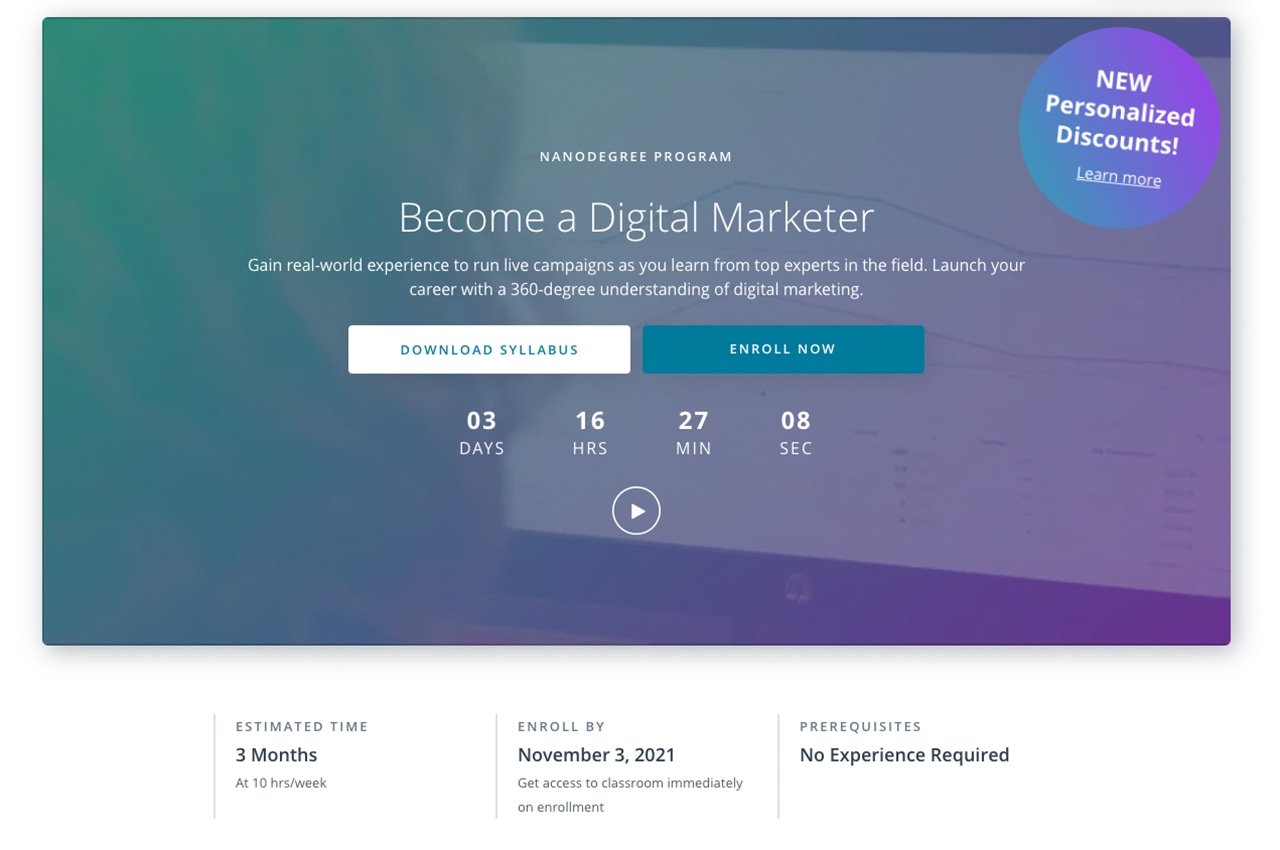
Selling a training course is one of the best ways to say ‘my knowledge is valuable’. It’s ideal for businesses whose areas of expertise would be considered complex for others. For example, here at zen, we could provide courses on subjects like these:
- Writing engaging content for your website
- Creating successful marketing campaigns
- Making big business decisions using design sprints
- Building a large social media following
- Developing a marketing strategy
Reviews and testimonials
Most businesses understand the value of having reviews available for potential customers to read. People spend time researching companies before spending their money with them, and reviews and testimonials are among the most effective forms of ‘social proof’.
For example, if I need to choose between two similar companies in my area to design and build a new garden office, the reviews from other people for the same product will definitely influence my final decision.
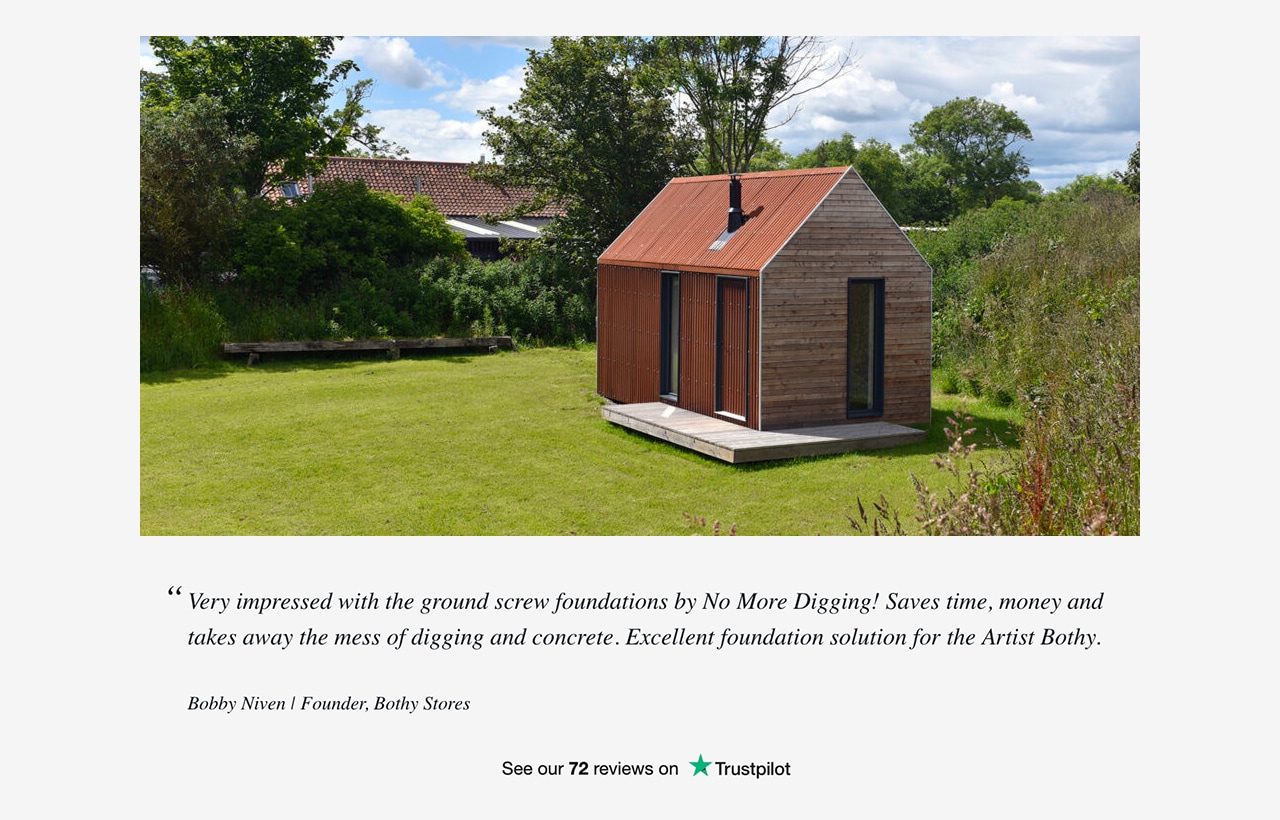
However, this kind of content is often criminally underused, sitting dormant and isolated on a web page, social media, or a review website. Successful content marketing takes individual reviews and uses them intelligently in all the right places.
Here are just some examples where reviews and testimonials can be more effective:
- Your website homepage
- Individual product or service pages next to call to action buttons
- Next to lead generation forms on landing pages
- In marketing emails
- As social media posts
- On printed materials too!
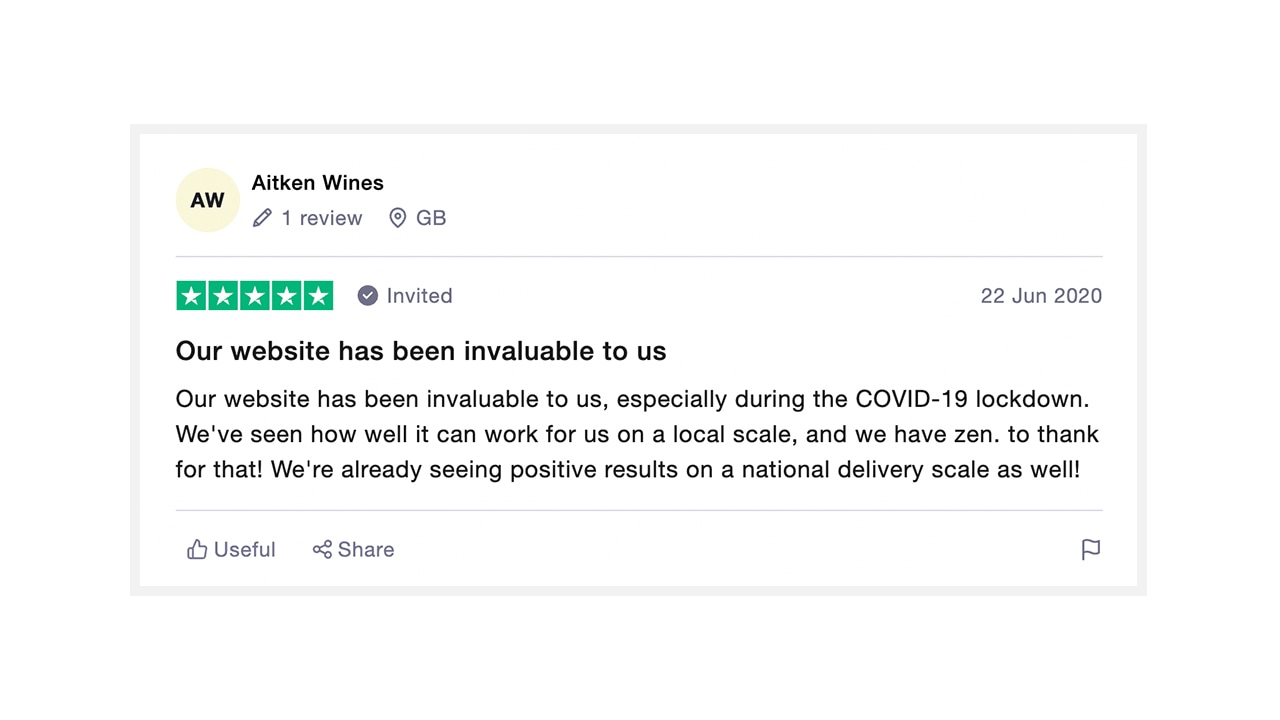
If you have a review from a particularly happy customer or one from a notable company, make the most of it. Push for more images, more details, even short video interviews. You’ll find this content becomes extremely influential because it tells a story of how your product or services made a significant impact on someone – this makes an emotional connection, which is what successful marketing is all about.
Knowledge base
A knowledge base is a library of helpful information about your products or services. This helps to inform customers and keep them happy as they can quickly search for and find answers to their questions.
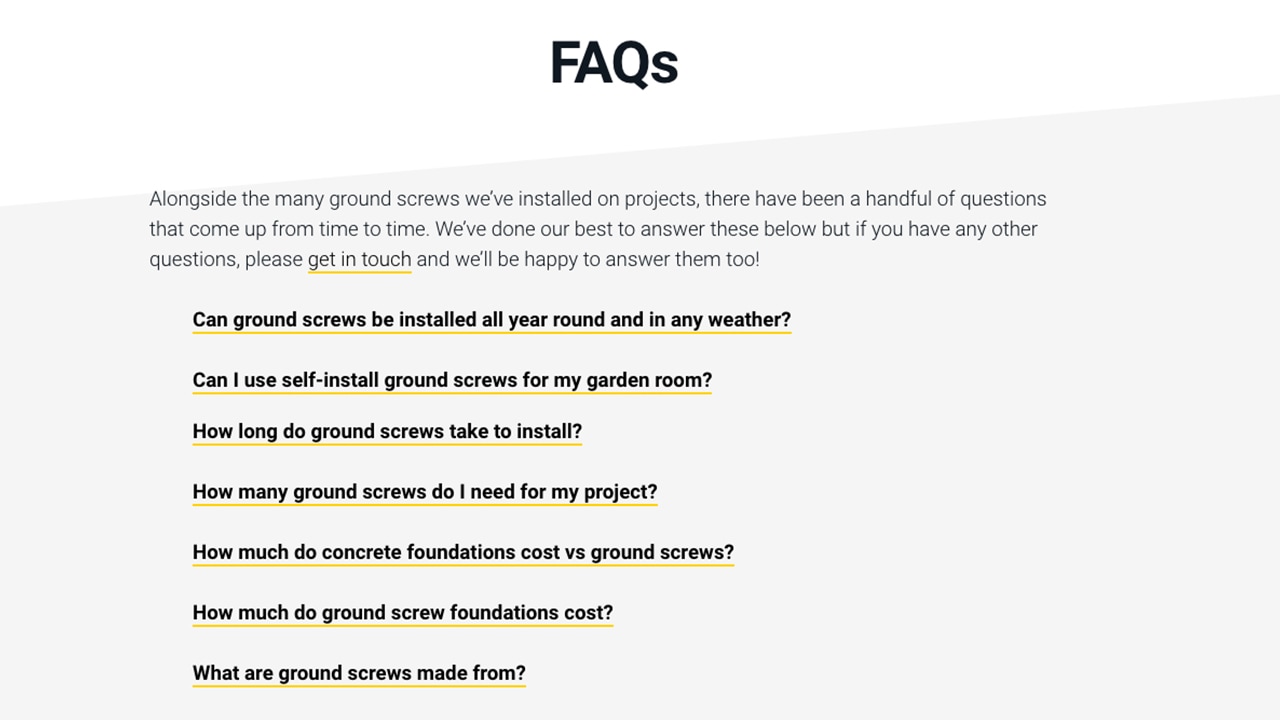
A knowledge base is beneficial for most businesses and it can provide the kind of answers that convince people to buy a product or get in touch about a service.
Knowledge bases are especially effective for those businesses receiving questions by phone, email, and social media messages on a regular basis. It’s much easier to simply refer people to an online section of Frequently Asked Questions (FAQs) than it is to answer the same questions every time.
Whitepapers
A whitepaper is a report or guide that aims to inform your audience about a complex subject matter. You can use whitepapers to take a position of authority on a challenging issue and explain how others can deal with that issue.
78% of B2B buyers say they use white papers when researching their purchasing decisions
Source: DemandGen
Whitepapers have always been popular with businesses, especially large corporations and organisations, but can be used by any business that has some information they want to deliver in a more formal way to their audience.
Whitepapers are another example of long-form content that aims to help its audience while also drawing positive attention to your business and your services.
It’s worth noting that effective whitepapers are successful because they not only engage people with their valuable content but also because they look professional too. You should invest in a professionally designed, branded template that you can then reuse for other whitepapers in the future.
Images
Not every business will have a tangible product that they can regularly show off with high-quality images and short videos or animations. However, if you are one of those businesses that would benefit from strong visuals on social media, Instagram and Pinterest should be your focus.
Videos
At the time of writing (November 2021), video is the most popular form of media used within content marketing.
TikTok
Short videos are ideal for social platforms like Tik Tok but you need to create an emotional connection with the audience, often through humour. TikTok’s videos are all about instant engagement with the viewer so that your video is watched and shared repeatedly.
Did you know? TikTok has over 3.7m active users in the UK
If your service or product can make a difference in someone’s life, you should let the world know using platforms like TikTok. However, you should avoid any kind of sales pitch. This won’t go down well with the younger audience who are typically in their teens and twenties (but not exclusively; usage with older generations is growing rapidly).
YouTube
Most businesses can generate video content and build an audience on YouTube. As one of the world’s most popular social platforms and websites, you should try to build a presence there for your business. Use YouTube to host the videos you display on your website and create videos specifically for that audience.
Here are some great examples:
Moz
We love their #WhiteboardFridays and conference content, as well as their clever use of playlists
Airbnb
Masters of content marketing generally, we love their host’s tips and stories
Ashley Neal
You might think the YouTube account of a driving instructor based in Liverpool is a strange example to reference here. However, the content Ashley shares is engaging, educational (even if you’re not learning to drive!), and shareable – plus, it generates plenty of discussion. This all helps to raise the profile of his business and develop his reputation as an authority on all things driving-related.
Live broadcasts
You can deliver content using live video on platforms like YouTube, Facebook Live, and via pre-scheduled webinars.
It’s a great way to show off your products or inform people about your specific area of knowledge. You can then record these live sessions to reshare and reuse them elsewhere, like social media and your website.
Quizzes and competitions
An usual one but still potentially very effective, quizzes and competitions are a fun way to engage with your audience and develop content that’s a bit different from your competitors.
Both quizzes and competitions are more likely to get shared than most other types of content.
Infographics
Not as popular as they once were (but still everywhere you look), infographics can be effective if they break the mould and contain timely and interesting information.
Podcasts
Podcasts are an increasingly popular and effective form of content marketing. This is because they feel like a conversation between the hosts and the listener. Rather than being talked at, listeners feel they’re being talked to and walked through the content in a more natural, human manner.

Podcasts are a great way to build an engaged audience over time and become an authority in your area of expertise.
Combine and experiment
It isn’t enough to pick one of these mediums and hope it works. Content marketing combines mediums, methods, platforms, and devices to ensure it captures and convinces its audience.
You may hit upon the right combination straight away (and that’s a sign that you know your audience well). But it’s not always this straightforward, especially if you’re a newly-established business or entrepreneur. For most, it’s about experimentation. If sharing infographics and running competitions on social media has fallen flat, why not try blogging and podcasting?
Is content marketing relevant for my business?
Almost certainly! The beauty of content marketing is that it can be effective for any size of business, selling any kind of product or service, across nearly all industries. Here are just a few examples:
Landscapers
People love their garden but don’t always know how they can improve or maintain it to a good standard. A landscaping business could write inspiring blog articles to give their audience guidance on a wide range of topics like garden rooms, decking, and planting. Or they could sell online training for planning a new garden layout or building a DIY garden room.
IT companies
With so many people relying on a computer or mobile phone for work, IT companies have so many options when it comes to content marketing, from tips on getting the most out of Microsoft Teams and videos on how to solve specific problems to promoting the benefits of a disaster recovery service.
Case Study: No More Digging
And now for a real-life example. We have worked with an exciting, fast-growing business called No More Digging on its branding, launch, and rapid expansion over the last two years. Content marketing was at the forefront of their marketing and still is today.
Here is a breakdown of how No More Digging fully utilises content marketing:
Knowledge Base
No More Digging have invested significant time into creating a knowledge base. This collection of FAQs helps both them as a business and their potential clients who can quickly get detailed answers to their questions without having to pick up the phone.
Case studies
No More Digging publish case studies about their projects so potential clients have clear evidence of their capabilities.
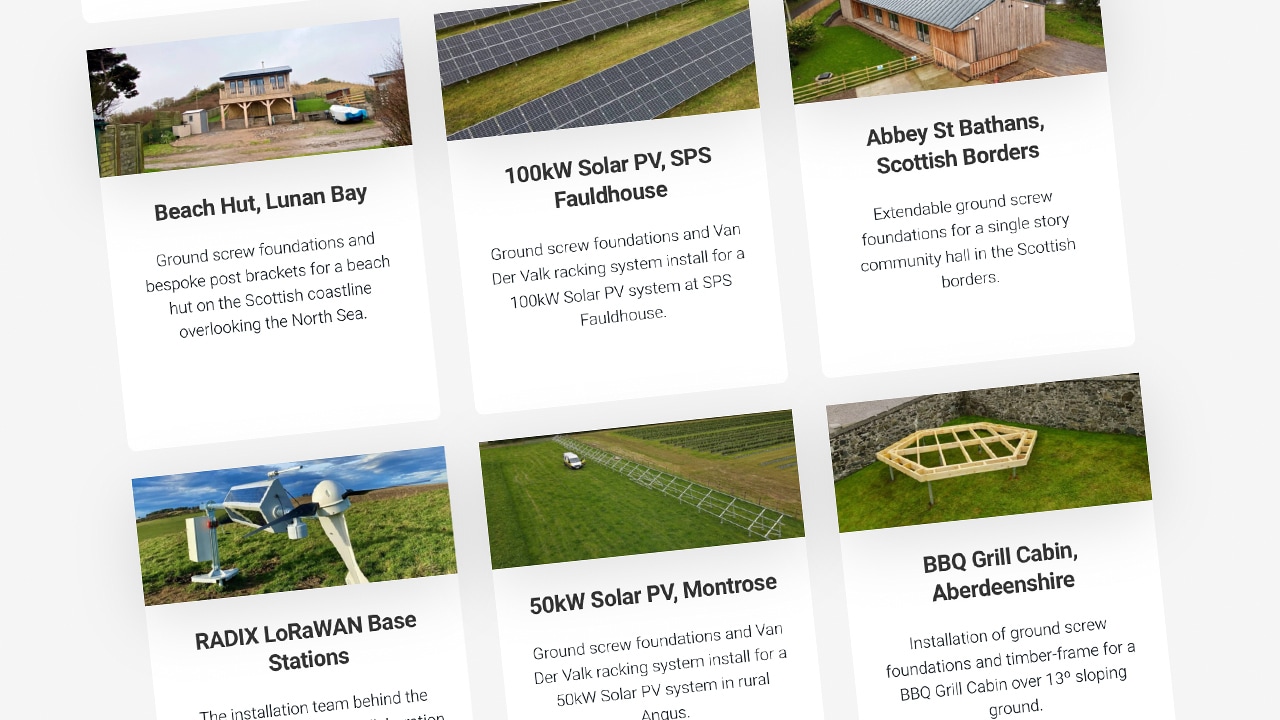
Social proof
No More Digging is the #1 in the UK for ground screw supply and installation and they mention this across whenever possible in their content. This market-leading status is backed by their reviews on Trustpilot.
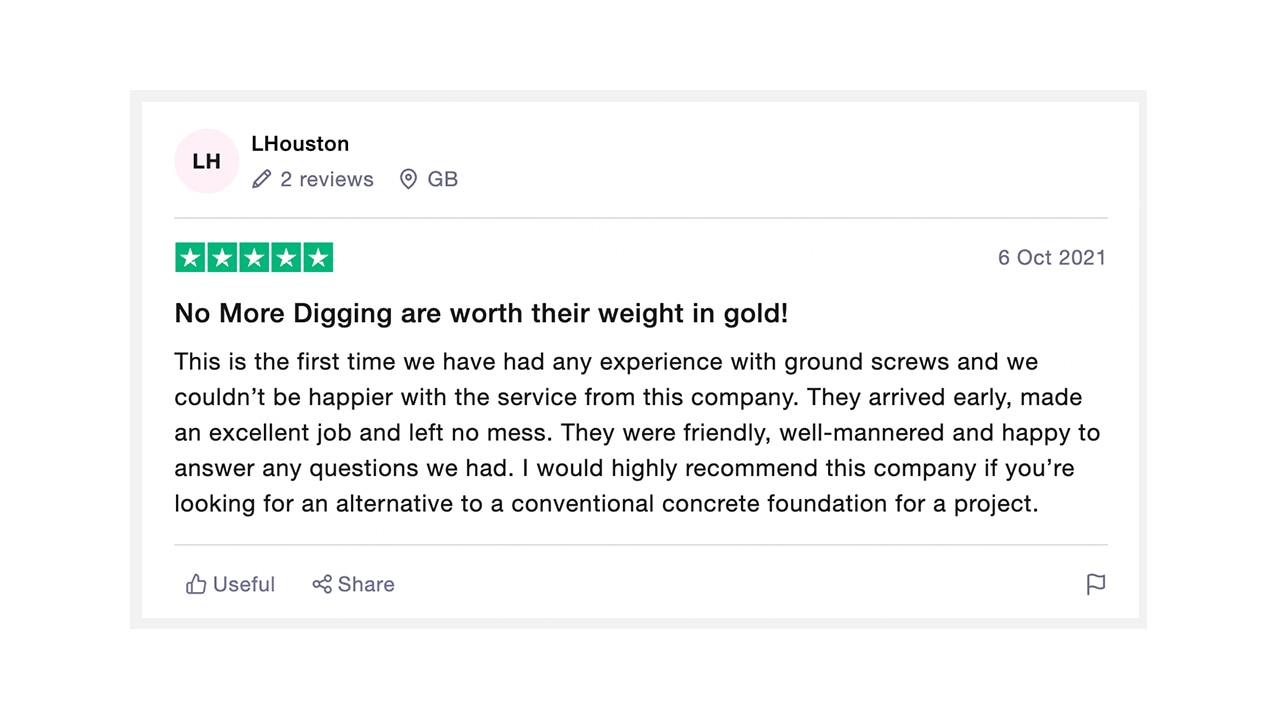
They provide a link to their Trustpilot reviews throughout their website and brochure to help convince potential clients to choose them for their next project.
Social media
The No More Digging team have become experts at posting images and video of projects on a regular basis to keep their audience inspired. Great use of drone technology helps them to create engaging content, helped by some of the incredible Scottish scenery on location. They are active on Facebook, Instagram, Linkedin, Twitter and YouTube!
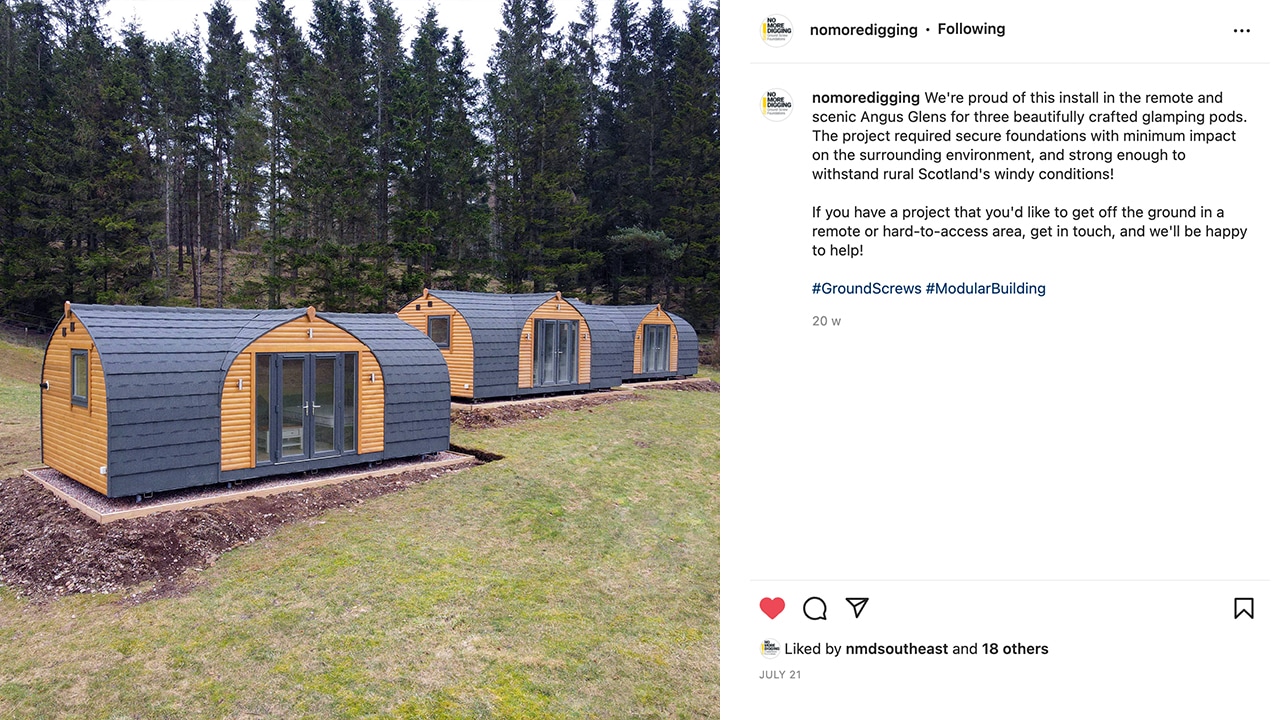
The team stay in touch with their B2B customers using email marketing, with a regular newsletter that provides updates on their products and recent work.

You can see from this example how content marketing is about fully utilising individual pieces of compelling content as a hard-working asset on more than one occasion and across multiple mediums.
What content will be most successful in your content marketing strategy?
What are your top-selling products or services? Where does your expertise lie? What are the growth areas in your industry? What are the primary needs of your target audience? And what are their pain points?
Answer these questions, and you will know what topics will work best for your content marketing. Then, come up with a list of potential topics and distribution methods that you can employ as part of your content marketing strategy.
What makes content marketing so powerful?
Audience connection
You’re talking directly to your audience, usually in some detail, about things that interest them. Often, you are trying to help them, targeting their needs and pain points with solutions in a novel way that doesn’t come across as direct marketing or selling.
Effective content marketing is helpful. It takes a storytelling approach that’s more appealing than formal or sales-driven content you’ll find in a press release, product brochure or on a landing page.
Automatic income generation
‘Automatic income’ sounds good, doesn’t it? Content can generate engagement and revenue while you're asleep, just like an e-commerce site.
Your whitepaper, online course, or webinar can be purchased any time of the day or night, without you needing to speak to the customer and convince them to buy.
Appropriately, it’s the content around the ‘sellable’ and valuable piece of content marketing that will work hard to convince people to invest their money. And that’s the trick right there – making it feel like an investment.
Positive activity
Great content creates traffic, engagement, social media followers, sales, repeat sales and conversations around your brand. It fills your Instagram, Twitter, LinkedIn, and Facebook feeds full of quality content, generating comments, likes and follows.
Trackable
You can track everything you publish and distribute as part of your content marketing, adding tracking codes to links and using tools for emails, landing pages, blogs, and media that let you know how your audience reacts and interacts with your content.
And, with some forward planning and technical know-how, you will be able to tell when your content marketing efforts have led directly to a business enquiry or sale.
Perception
We’re not keen on the term ‘knowledge leader’ – it’s a bit vague and somewhat of a Linkedin cliche – but, when a business or entrepreneur gets content marketing right, they are certainly seen to be leading in their particular area of expertise.
You too can be seen as the authoritative expert in your industry by sharing some insights on a regular basis.
Longevity and value for money
Even if you produced the content a long time ago and haven’t done much with it yet, it’s not going anywhere. It’s evergreen content – content on important topics that doesn’t go out of date and stays relevant to your audience over a long period of time. A bit like an evergreen tree.
Here are a few examples of content written around evergreen topics (business success, financial security and happiness):
- How to market your business
- 10 ways to win more customers
- How to save money
- How to invest for the future
- How to achieve a zen-like state
Unlike a paid advertisement, your evergreen article isn’t going away. It lives on your site, social media, YouTube, or the search engine results pages.
Whatever your up-front investment was, that bit of content is yours to use and reuse. And if some of that content becomes out-of-date? You can edit, update, republish, reframe, and reuse the best bits.
Search Engine Optimisation (SEO)
The content you create will provide practical answers to the search queries your potential customers are searching for.
Top tip: Focus your content on a keyword phrase and link to relevant content elsewhere on your website for maximum SEO juice. For example, the focus keyword phrase for this article is, of course, ‘content marketing’. You’ll notice it in our page title, headings, and as links to our services page.
Using our client No More Digging again as an example, you will find their site ranking close to the top of the search results for phrases like these:
- how do ground screws work?
- how much are ground screws?
- solar foundations
And by creating your content in multiple formats (text, images, videos), you will increase the number of search results that will direct people to your website. Just be sure to avoid duplicating your content word-for-word on the web (for example, as a blog article on your website and as a guest blogger on another website).
How to get started with content marketing
Start simple
At the beginning of your content marketing journey, choose the medium you’re most comfortable with. That might be monthly blog posts or a weekly online skills sharing session. Then push your boundaries and expand into a less familiar and comfortable medium, like recorded training sessions or live events.
Form a strategy
Once you have dipped your toes into content marketing, it’s best to plan out your long-term approach. This is the key to effective content marketing.
There are four questions you should ask while developing your content strategy:
- What are your objectives?
- Who is your target audience?
- What does your audience want or need?
- What type of content should you use to meet those needs?
Creating an effective content marketing strategy is an in-depth topic and not something we have the space to cover here.
Develop a content calendar
Plan when you write and publish content using a calendar and stick to this schedule as best you can. It’s not easy to balance content creation with other day-to-day work so we recommend sharing this calendar with others who can hold you accountable.
Track the results, analyse, and evaluate
If you’re investing a lot of time creating, publishing, and sharing your content, you want to know if it’s paying off or not. So it’s essential to have the tools and techniques in place that let you track the activity around your content.
You can then analyse and evaluate how people are engaging with your content, which medium works best, and the impact on your sales.
Want to talk to us about boosting your marketing?
If you need some advice or hands-on support with your content marketing, from strategy to execution, we have extensive experience working with businesses in a wide range of industries.
We’re available 9am to 5pm, Monday to Friday to have a no-obligation chat over the phone or, even better, virtually over a video call.
Call us on 01382 808 808, or ping an email over to [email protected], and we'll be happy to help!